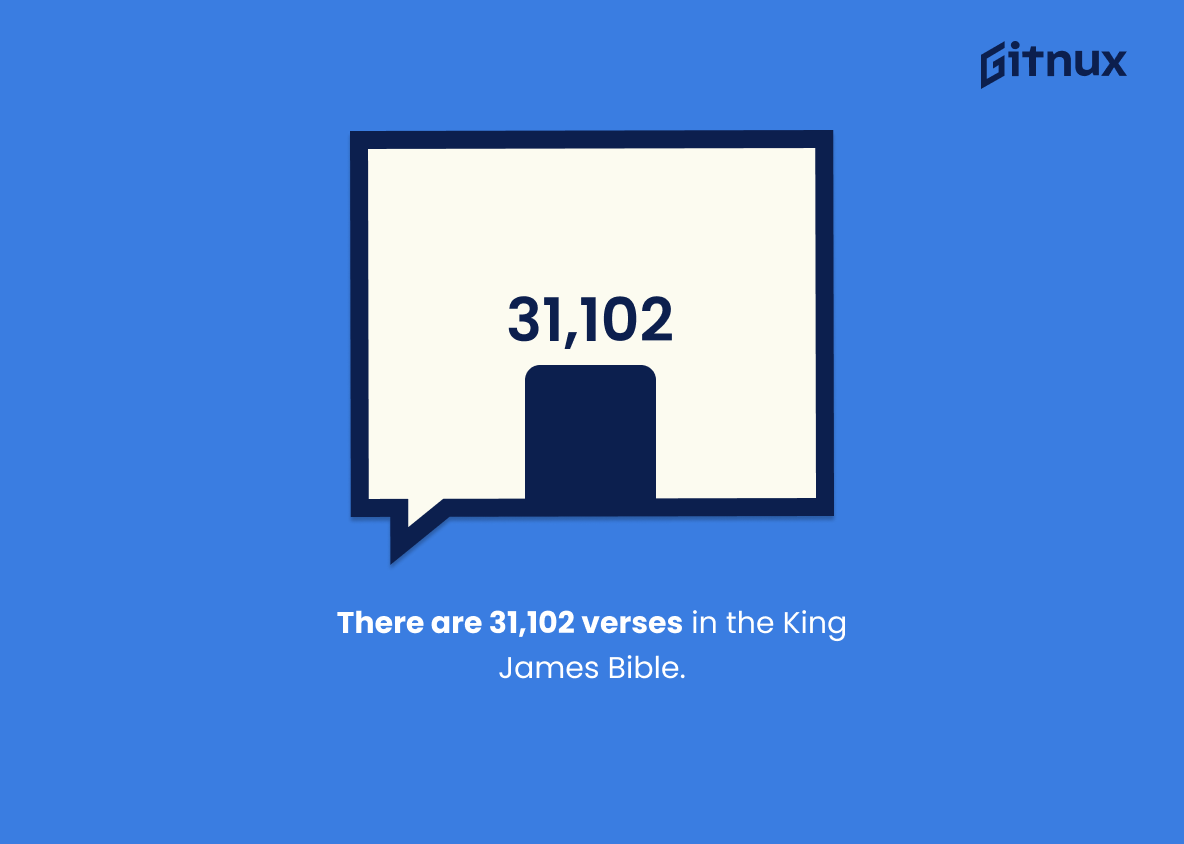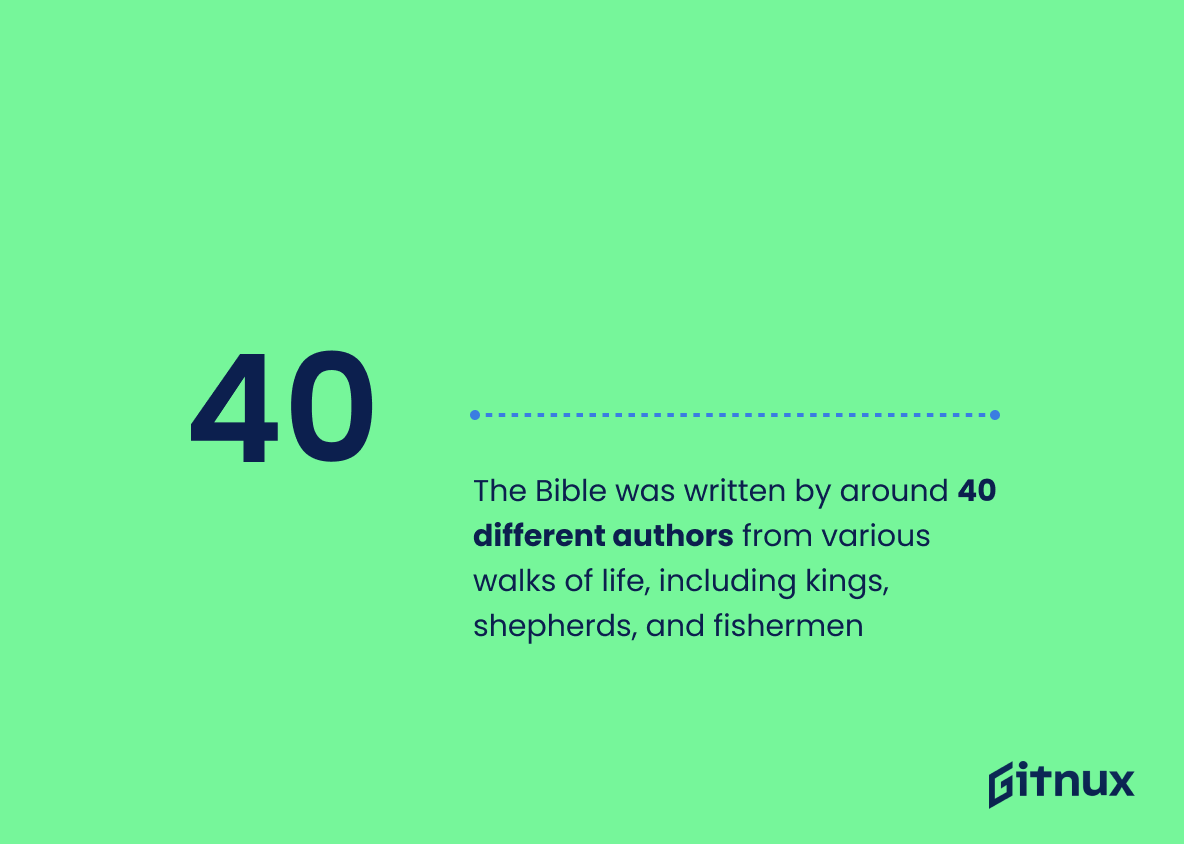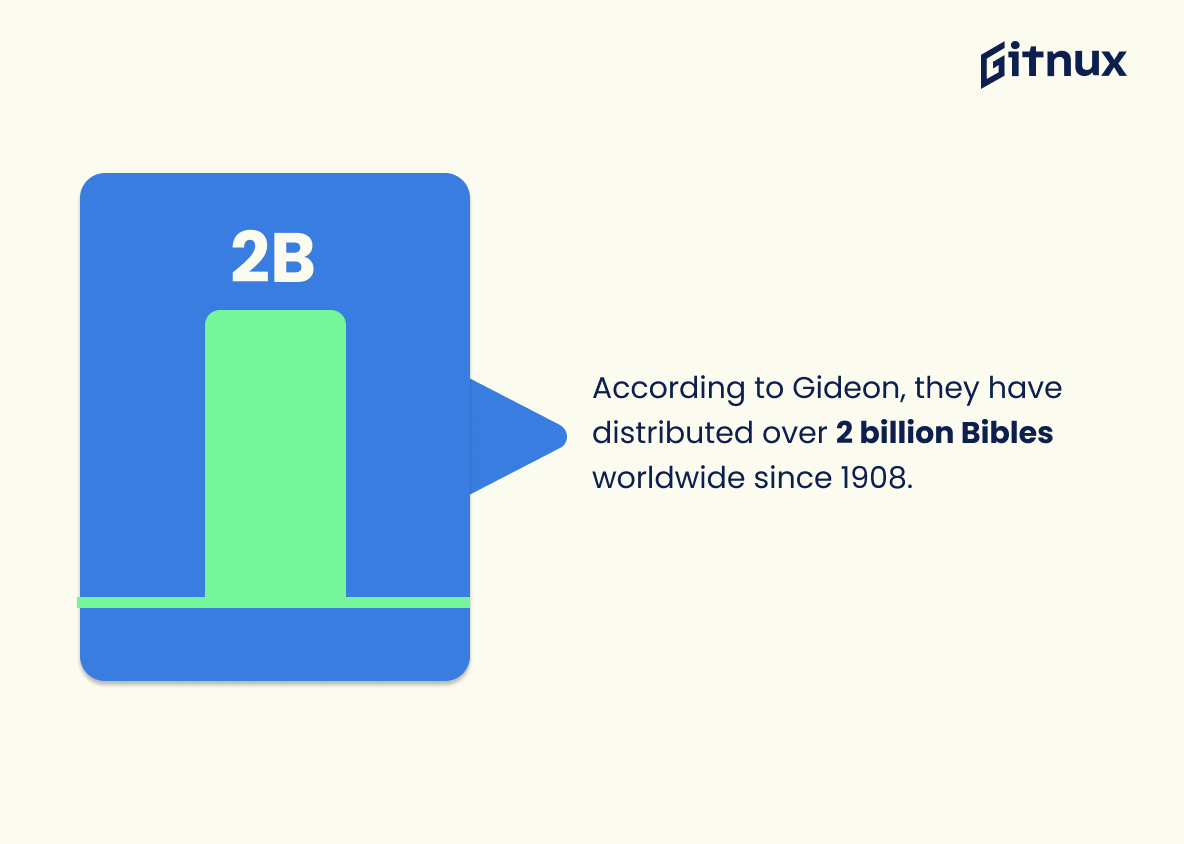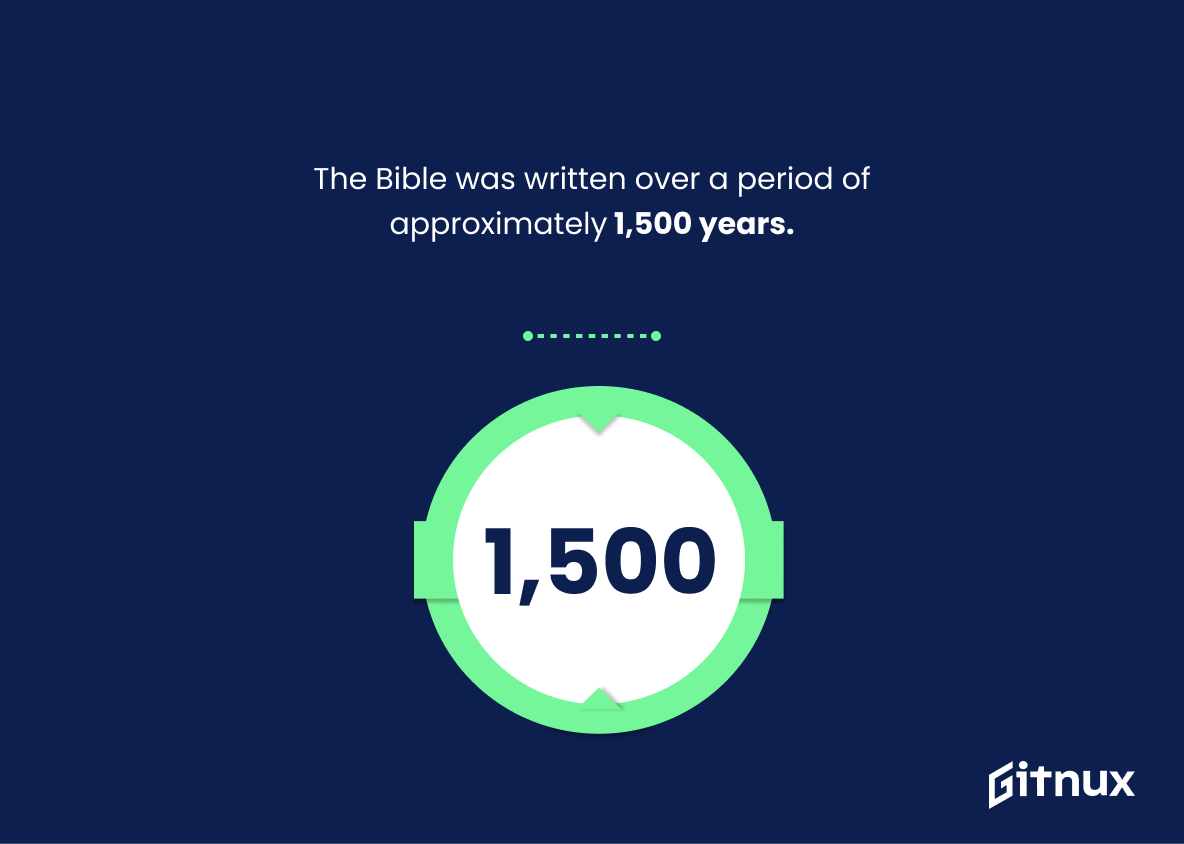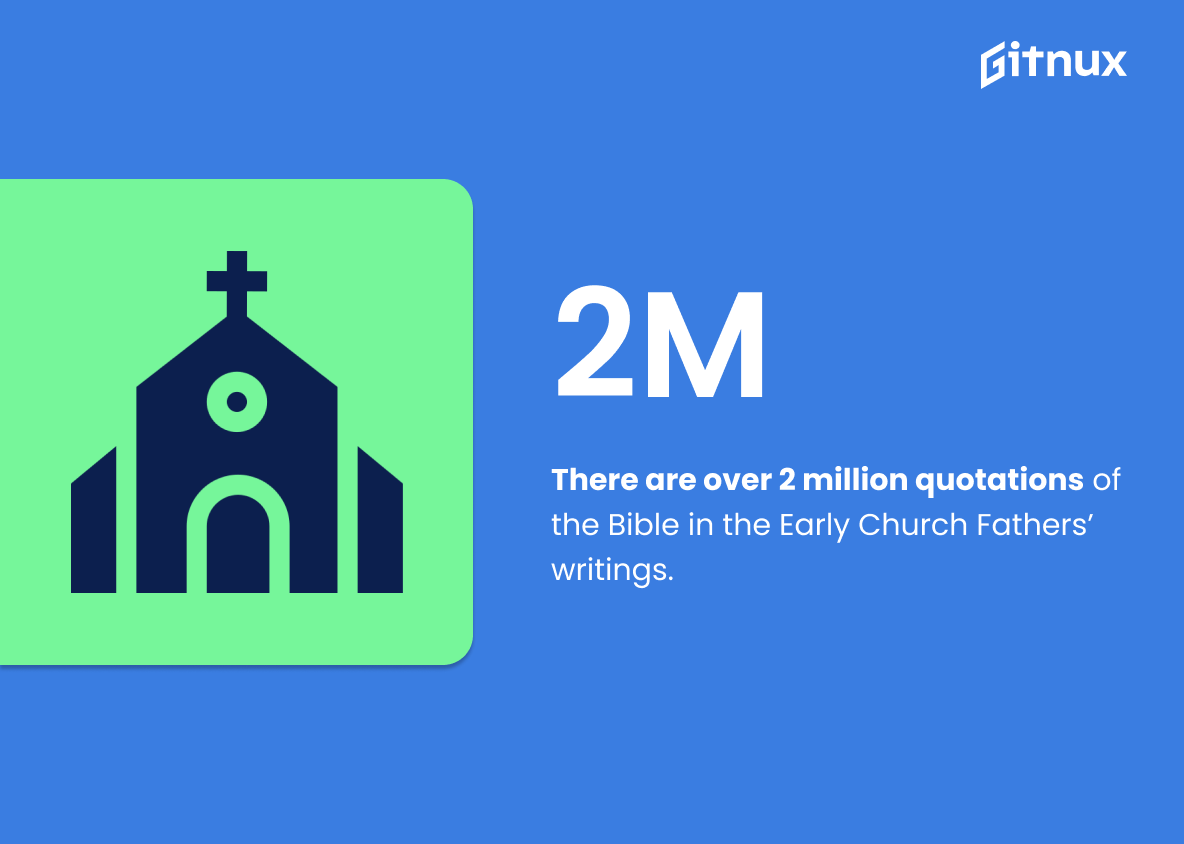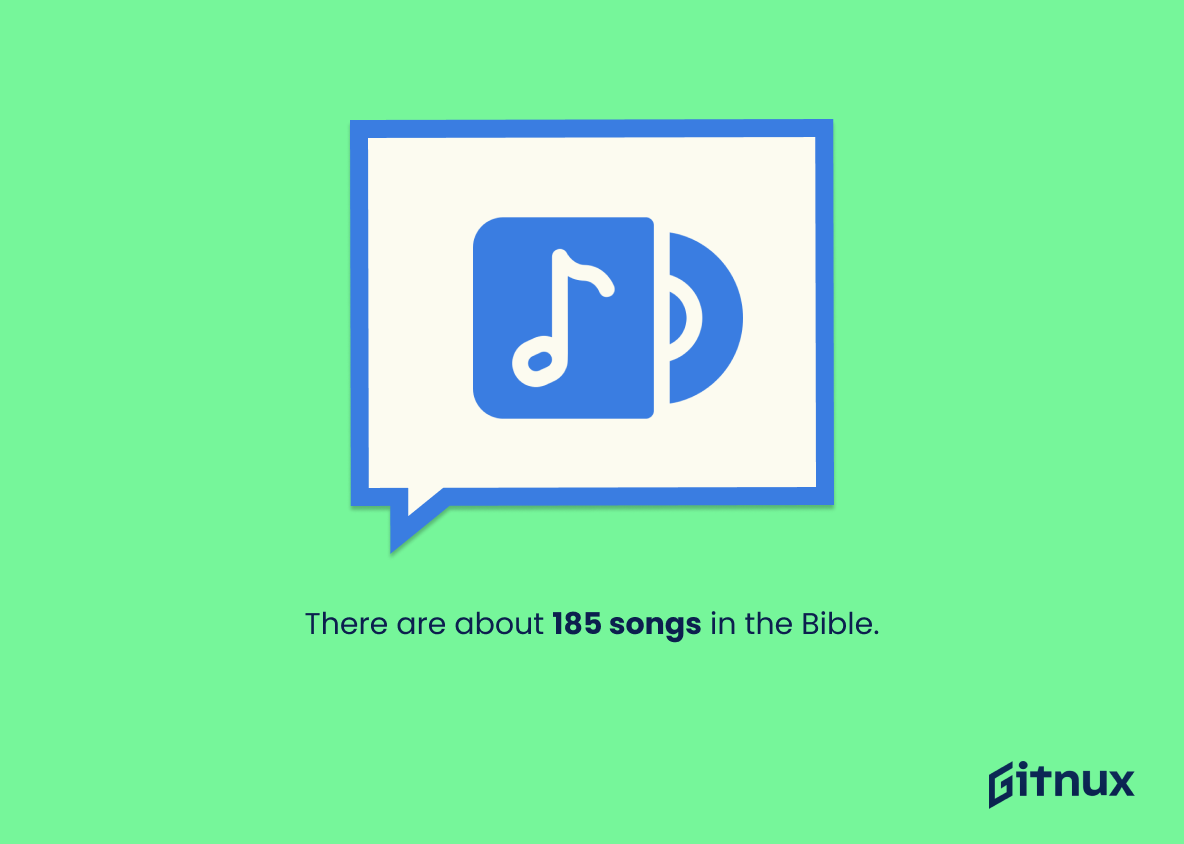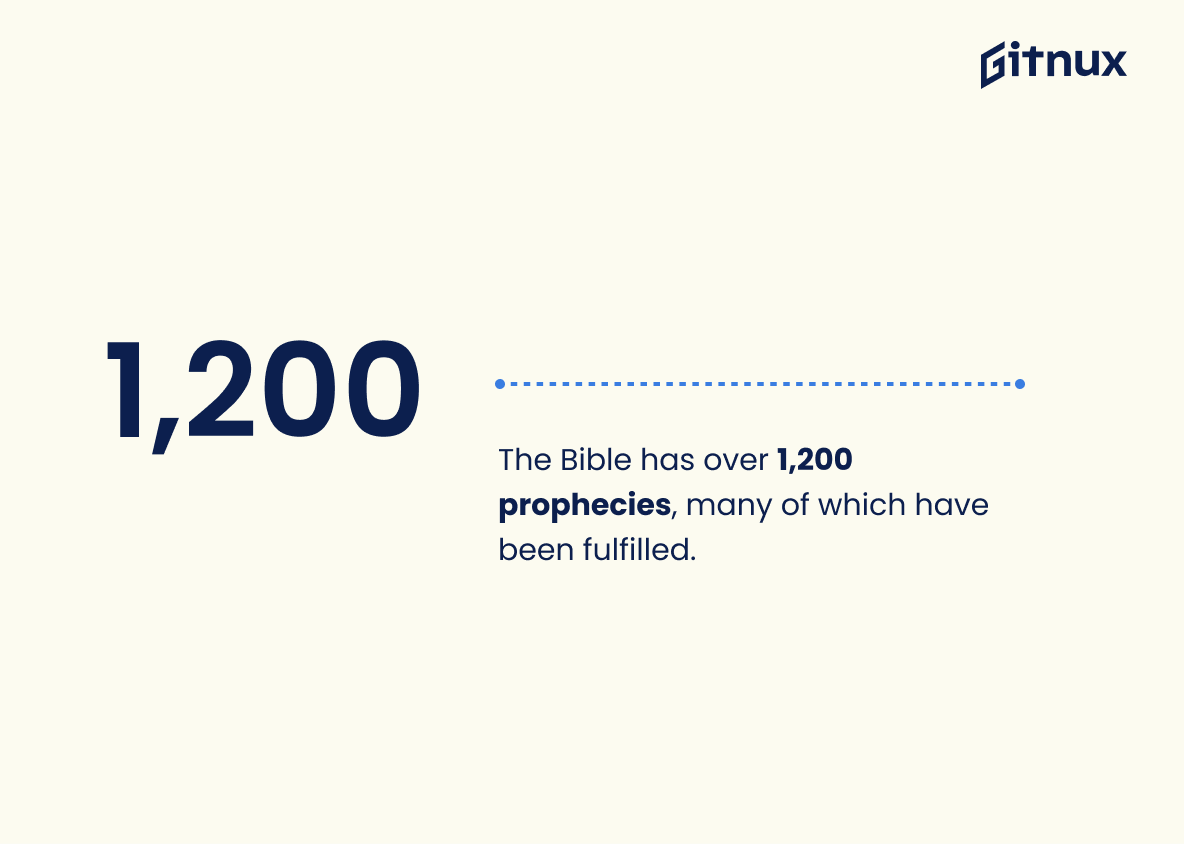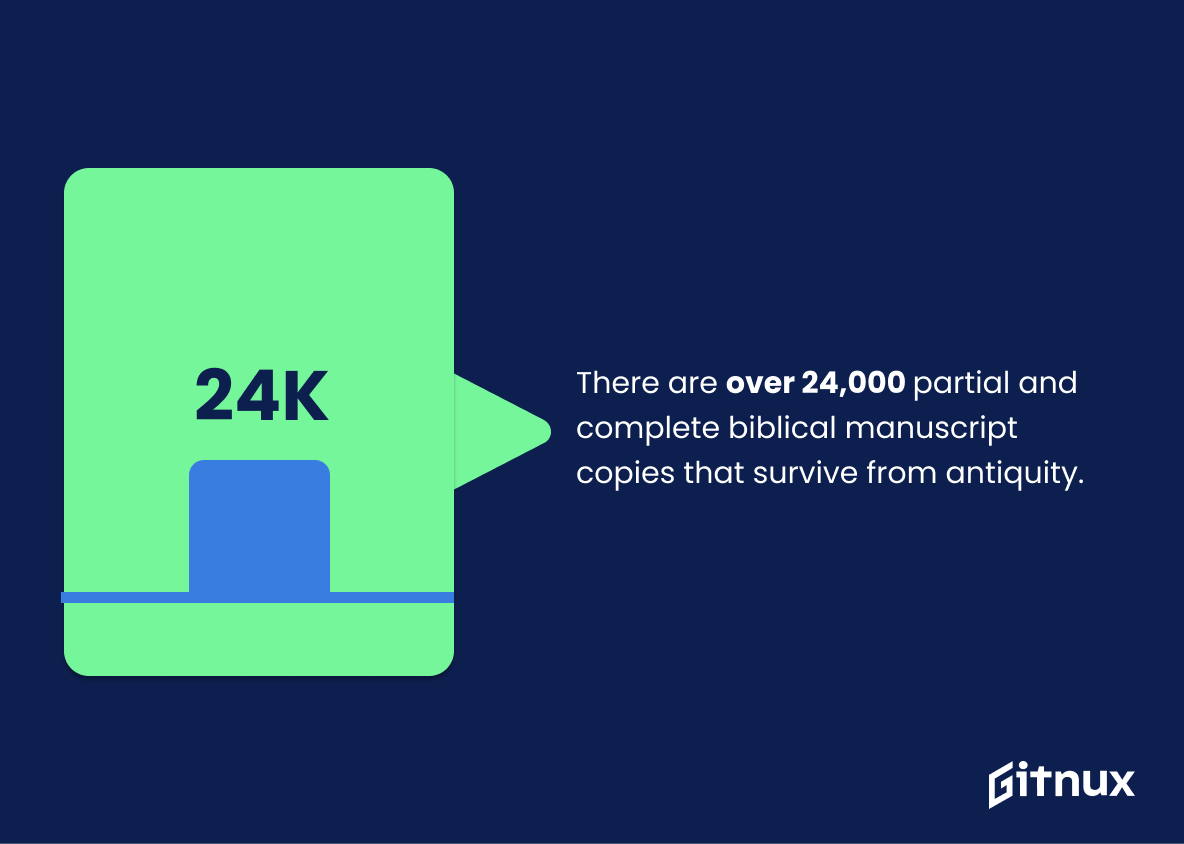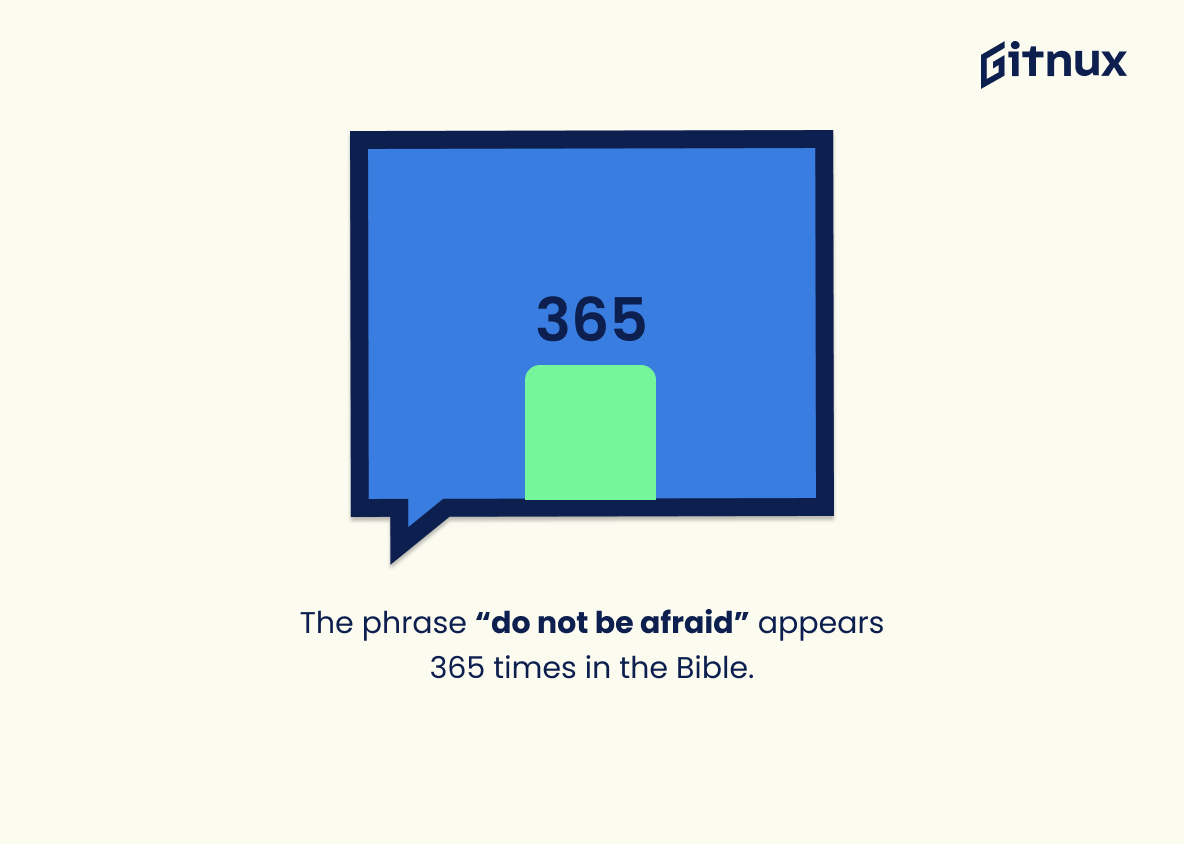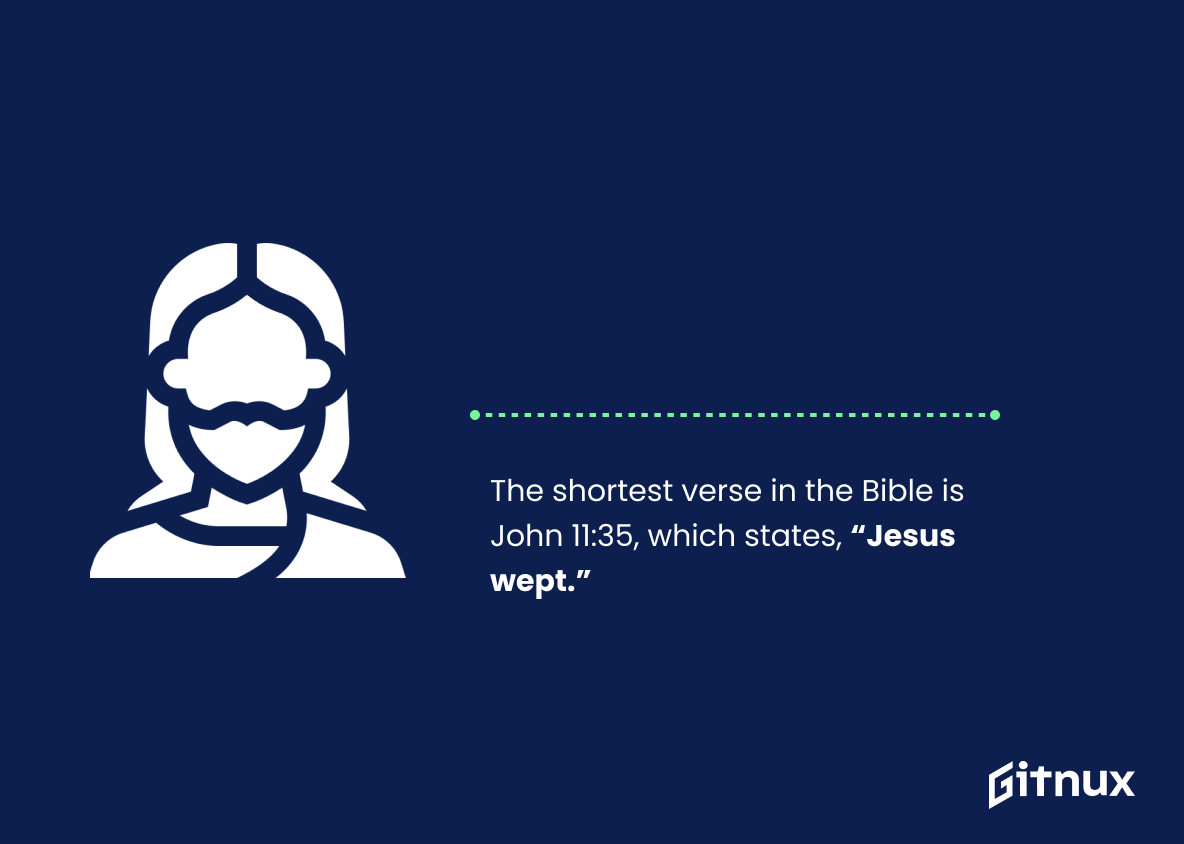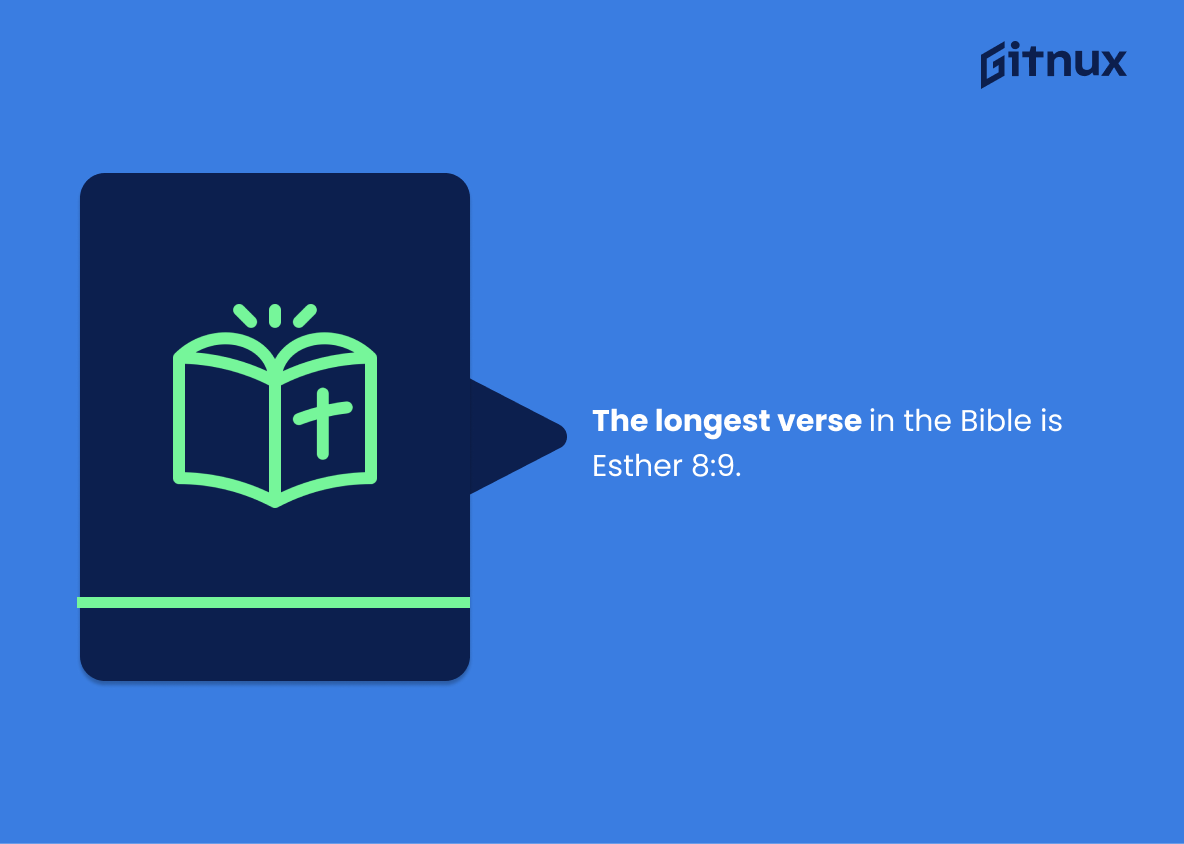The Bible holds immense influence as one of history’s most impactful books, permeating our culture. It boasts an astounding record of being translated into hundreds of languages, selling billions of copies worldwide, and containing thousands of verses that have inspired countless generations. Let’s delve into some intriguing statistics surrounding this remarkable book:
The Bible holds the esteemed title of the best-selling book in history, with over 5 billion copies sold (Guinness World Records). It comprises 66 books in the Protestant Bible and 73 books in the Catholic Bible (Christianity). The complete Bible has been translated into 700 languages, and at least one book from it has been translated into 3,500 different languages (Wycliffe UK).
The King James Version alone contains 31,102 verses (Bible Facts). Remarkably, approximately 40 authors, including kings, shepherds, and fishermen, contributed to what we now know as the Bible (Overviewbible). Since 1908, Gideon International has distributed more than 2 billion Bibles (Gideon International). The Bible’s compilation spans over 1500 years and features various authors (Christian Answers Network). The writings of Early Church Fathers contain over two million quotations from biblical texts (Bible Researcher).
Within its pages, you can find 185 songs (Wholesome Words) and over 1200 prophecies, many of which have already come to pass. Today, we have approximately 24,000 partial or complete surviving manuscripts of the Bible. The Gutenberg printing press played a significant role in producing the first widely mass-produced metal type version of the Bible. Since 1941, the National Association has consistently promoted a national Bible week annually. Interestingly, the word “biblia,” meaning “books,” gave rise to the term “Bible.”
The phrase “do not be afraid” appears a striking 365 times throughout the Bible. The shortest verse, John 11:35, poignantly states “Jesus wept.” On the other hand, the longest verse can be found in Esther 8:9. Surveys reveal that 54% of US adults read the Bible less than once per month, while 27% read it several times a week. Love is mentioned an impressive 310 times in the King James Version of the Bible. Psalm 119 claims the distinction of being the longest chapter, encompassing 176 verses.
Bible Statistics Overview
The Bible has been translated into 700 languages completely, with at least one book of the Bible being translated into over 3,500 languages.
This statistic is a testament to the Bible’s far-reaching influence and impact. It speaks to the Bible’s ability to transcend language barriers and be accessible to people from all walks of life. It is a reminder of the Bible’s timelessness and its ability to remain relevant and meaningful to people from all cultures and backgrounds.
There are 31,102 verses in the King James Bible.
This statistic is a testament to the sheer magnitude of the King James Bible, demonstrating the sheer amount of content contained within its pages. It serves as a reminder of the Bible’s importance and influence throughout history, and its continued relevance today.
The Bible was written by around 40 different authors from various walks of life, including kings, shepherds, and fishermen.
This statistic is a testament to the Bible’s remarkable diversity. It demonstrates that the Bible was written by a wide range of people from different backgrounds, each with their own unique perspective. This speaks to the Bible’s ability to capture the human experience in all its complexity, and to provide insight and guidance to people from all walks of life.
According to Gideon, they have distributed over 2 billion Bibles worldwide since 1908.
Gideon’s statistic of having distributed over 2 billion Bibles worldwide since 1908 is a powerful testament to the impact of the Bible. It speaks to the Bible’s ability to reach people of all backgrounds and cultures, and to the enduring relevance of its teachings. This statistic is a reminder of the Bible’s lasting influence and its ability to bring people together.
The Bible was written over a period of approximately 1,500 years.
This statistic is a testament to the Bible’s longevity and endurance. It speaks to the timelessness of its teachings, which have been passed down through the generations for over a millennium and a half. It is a reminder of the Bible’s immense influence on the world, and its ability to remain relevant and meaningful to people of all ages and backgrounds.
There are over 2 million quotations of the Bible in the Early Church Fathers’ writings.
This statistic is a testament to the enduring influence of the Bible in the Early Church Fathers’ writings. It speaks to the power of the Bible’s words and the impact it has had on generations of believers. It is a reminder of the timelessness of the Bible and its ability to speak to people of all ages and backgrounds.
There are about 185 songs in the Bible.
This statistic is a testament to the sheer volume of wisdom and insight contained within the Bible. It serves as a reminder of the sheer breadth of knowledge and understanding that can be found within its pages, and the importance of taking the time to explore and appreciate its contents.
The Bible has over 1,200 prophecies, many of which have been fulfilled.
This statistic is a testament to the Bible’s credibility and accuracy. It shows that the Bible is not just a collection of stories, but a book of prophecies that have been fulfilled. This is an important point to make in a blog post about Bible Statistics, as it demonstrates the Bible’s reliability and trustworthiness.
There are over 24,000 partial and complete biblical manuscript copies that survive from antiquity.
This statistic is a testament to the Bible’s longevity and relevance. It speaks to the Bible’s staying power, as it has been around for centuries and continues to be studied and referenced today. It also speaks to the Bible’s importance, as it has been preserved and passed down through the generations. This statistic is a reminder of the Bible’s significance and its impact on the world.
The Gutenberg Bible, printed in the 1450s, was the first major book printed using mass-produced movable metal type in Europe.
This statistic is a testament to the power of the Bible, as it was the first major book to be printed using mass-produced movable metal type in Europe. It is a reminder of the impact the Bible has had on the world, and how it has been a source of inspiration and knowledge for centuries. This statistic is a reminder of the importance of the Bible and its influence on our culture and society.
The word “Bible” comes from the Latin word “biblia,” which means “books.”
This statistic is significant in the context of a blog post about Bible Statistics because it provides insight into the origin of the word “Bible” and its meaning. It is a reminder that the Bible is a collection of books, each with its own unique message and purpose. Knowing the origin of the word “Bible” helps to better understand the importance of the Bible and its impact on society.
The phrase “do not be afraid” appears 365 times in the Bible.
This statistic is a powerful reminder of the Bible’s message of hope and courage. It speaks to the idea that no matter what life throws at us, we can always find strength in the words of the Bible. This statistic is a testament to the power of the Bible’s words and the comfort they can bring to those who are struggling. It is a reminder that we can always find solace in the Bible’s words, no matter how difficult life may seem.
The shortest verse in the Bible is John 11:35, which states, “Jesus wept.”
The fact that the shortest verse in the Bible is John 11:35, which states, “Jesus wept,” speaks volumes about the power of the Bible. It is a reminder that even the simplest of words can have a profound impact. This verse is a reminder that even in our darkest moments, Jesus is there to comfort us. It is a reminder that even in our most difficult times, Jesus is there to weep with us. This statistic is a powerful reminder of the power of the Bible and its ability to bring comfort and hope to those who need it most.
The longest verse in the Bible is Esther 8:9.
This statistic is a testament to the sheer size and scope of the Bible, with Esther 8:9 standing as a symbol of its grandeur. It serves as a reminder of the Bible’s immense influence and its ability to captivate readers with its timeless stories and teachings.
The word “love” appears in the King James Version of the Bible 310 times.
This statistic is a powerful reminder of the centrality of love in the Bible. It speaks to the importance of love in the Christian faith, and how it is woven throughout the scriptures. It is a reminder that love is the foundation of the Christian faith, and that it should be a guiding principle in our lives.
Psalm 119 is the longest chapter in the Bible with 176 verses.
This statistic is a testament to the sheer magnitude of the Bible, with Psalm 119 being the longest chapter in the book. It serves as a reminder of the sheer amount of knowledge and wisdom contained within the Bible, with 176 verses of insight and guidance. It is a powerful reminder of the importance of the Bible and its impact on our lives.
Conclusion
The Bible is an incredible book that has had a profound impact on the world. It has been translated into hundreds of languages, sold billions of copies, and written by dozens of authors from all walks of life. Its words have inspired millions throughout history and continue to do so today. The statistics presented in this blog post demonstrate just how remarkable the Bible truly is – it contains over 31 thousand verses, 1,200 prophecies (many fulfilled), 24 thousand manuscript copies surviving from antiquity, 185 songs within its pages and more than 2 million quotations in Early Church Fathers’ writings.
Furthermore, it was printed as early as 1450s with Gutenberg’s printing press making it one of the first books ever mass-produced using movable metal type in Europe. Finally National Bible Week promotes reading scripture every year since 1941 showing us that even after centuries people still find value in God’s Word.
References
0. – https://www.guinnessworldrecords.com
1. – https://www.gideons.org
2. – https://www.wholesomewords.org
3. – https://www.overviewbible.com
4. – https://www.christianity.com
5. – https://www.josh.org
6. – https://www.kingjamesbibleonline.org
7. – https://www.bible-researcher.com
8. – https://www.biblefacts.org
9. – https://www.biblehub.com
10. – https://www.beliefnet.com
11. – https://www.christiananswers.net
12. – https://www.compellingtruth.org
13. – https://www.wycliffe.org.uk
14. – https://www.bitesizedexegesis.com
15. – https://www.bl.uk
16. – https://www.reasons.org

